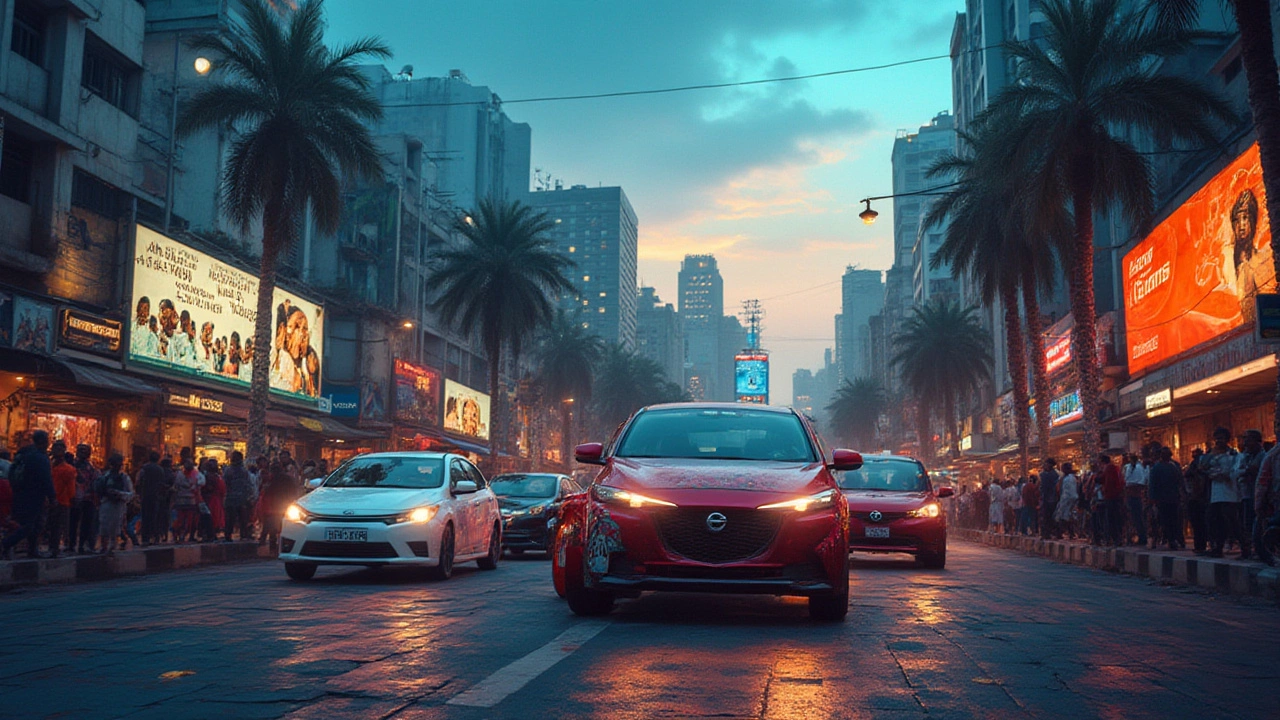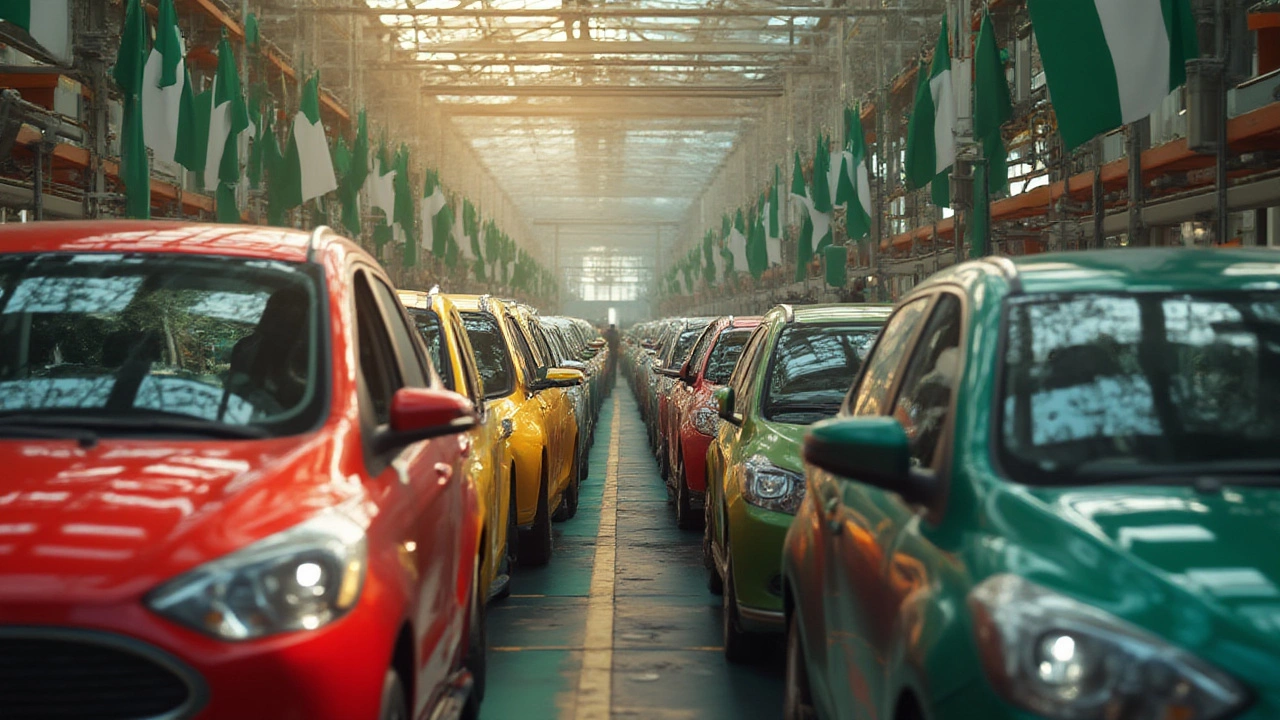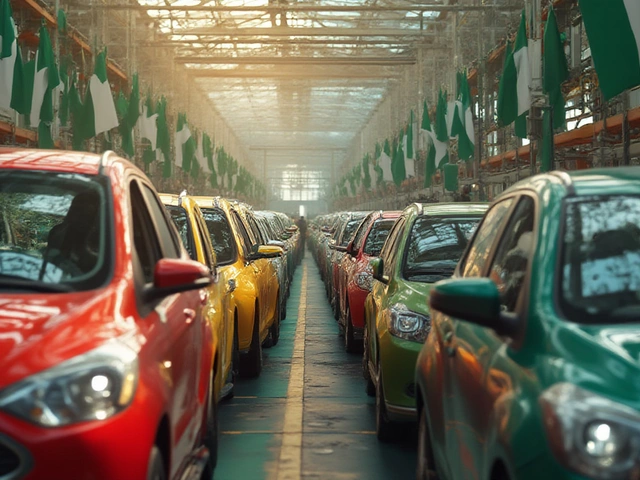The story of cars and Nigeria isn’t some dry corporate tale. Years ago, seeing a “Made in Nigeria” badge on a car was as rare as snow in Lagos. But take a good look today—there are vehicles rolling out of Nigerian factories, built for Nigerian roads, by Nigerian hands. These aren't rebadged imports but true products of local enterprise and crazy amounts of grit. The big question: which car brands can you genuinely call made-in-Nigeria? And why does it even matter? Most folks outside West Africa would be stumped. But within Nigeria, there’s growing pride and curiosity. This isn’t just about nuts and bolts. It’s national confidence on wheels. Let’s buckle up and see what’s truly driving Nigeria’s auto revolution.
The Early Days: How Car Manufacturing Started in Nigeria
Think about Nigeria just after independence: crazy with potential, heavy on ambition, a fresh market eyed by global car companies. Back in the 1970s and 1980s, the government wanted to kickstart local car manufacturing. They dreamed big—car factories would create jobs, boost the economy, and help the country step away from pure oil dependence. Popular brands at the time, like Peugeot and Volkswagen, got massive plants set up in Kaduna and Lagos with plenty of government support.
But things didn’t ride smooth. Between never-ending bureaucracy, poor infrastructure, and tricky policies, the dream kept stalling. The main models—Peugeot 504, Peugeot 505, Volkswagen Beetle, and Jetta—were actually just assembled from complete knock-down (CKD) kits, shipped in from elsewhere. Still, these were technically Nigerian-assembled. The plants provided jobs and lessons for local engineers, but they depended heavily on international input.
By the 1990s, many of these early assembly operations nearly disappeared. Flooded with cheap imported second-hand cars (aka "Tokunbo" cars), folks wanted affordable options rather than pricey new models. The drop in demand, plus inconsistent government backing, left most factories either idle or converted into warehouses. Anyone passing by the vast empty halls at Lagos’ Volkswagen plant could feel the weight of lost ambition. Despite these setbacks, the idea of truly Nigerian cars didn’t die. It went underground, growing more determined. And eventually, it came back punching harder.
The Birth of Real Nigerian Car Brands: From Dream to Driveway
So what brand finally put "Made in Nigeria" on the map? The spotlight’s on Innoson Vehicle Manufacturing (IVM), a name now synonymous with local pride. Launched in 2007 by Innocent Ifediaso Chukwuma, this isn't your average car company. IVM’s story reads like something out of a business thriller: the founder, who previously made plastic goods and motorcycle parts, wanted to do what the big German and Japanese giants couldn’t—build cars, buses, and trucks for African roads by Africans.
Innoson's plant, based in Umudim, Nnewi (southeast Nigeria), churns out a diverse fleet. The IVM G5 SUV, IVM Umu sedan, buses, trucks—you name it. Unlike those old CKD plants, Innoson insists that about 70% of its components are sourced locally. The company produces plastics, bumpers, seats, dashboards and even batteries in its own factories. Although the engines and some high-tech parts are imported (mainly from China), the majority of manufacturing jobs stay local. You’ll spot Innoson vehicles in government fleets, universities, and city transport lines. Even the Nigerian armed forces use them.
There’s more than just bragging rights in the mix. Innoson’s presence cracked something open—if one company could succeed here, others might follow. And they did. Stallion Group, a conglomerate, runs Hyundai and Nissan assembly lines in Lagos. Peugeot Automobile Nigeria (PAN) came back fighting, producing new models for the local market. But it’s Innoson that truly redefined what a made-in-Nigeria vehicle could be, adapting designs for tough local roads, hotter climates, and, honestly, the hustle of daily Nigerian life.
Other ventures pop up too: Nord Automobiles, founded in 2018, assembles practical models like the Nord Tank and Nord Max. Proforce specialises in armoured vehicles, used by military and security outfits around Africa. Jet Motor Company produces electric buses—yes, electric!—proving that local innovation isn’t stuck on petrol engines alone. The range of “made-in-Nigeria” options might be small compared to Japan or the US, but what's cool is that they're tailored for Nigerian needs, not just global trends.

Why "Made-in-Nigeria" Cars Matter: Jobs, Pride, and the Local Economy
It’s tempting to ask: why battle to make cars locally when imported options still flood the market? The answer’s about more than just money. First, car manufacturing is like a tree with roots everywhere, nourishing thousands of other parts of the economy. Picture the steelworkers making frames, the upholsterers cutting car seats, or workers producing tires and batteries. When a country builds cars, it builds skills—and entire industries around it.
Take the jobs question. Innoson’s Nnewi factory employs over 7,000 people directly, with thousands more involved in supply chains for components, logistics, and sales. Many of the suppliers, from plastics to wiring, are homegrown Nigerian businesses. It’s not just the engineers and assembly line crew—think marketers, trainers, cleaners, transport drivers, IT workers, everyone. This ripple effect is what makes manufacturing powerful. Every vehicle rolling out of these plants is a handshake between Nigerian craftsmanship and ambition.
There’s the pride factor, too. For decades, Nigeria depended on foreign goods to move its economy forward. Each locally made car is small but visible proof things can change. Politicians love to flaunt Innoson SUVs at state events, public officials place bulk orders, and regular citizens now debate which local car is better suited for their bumpy street or crowded family. It’s become a part of the national talk—no longer “Can we?” but “Why not us?”
Of course, there are challenges. Rising inflation, unreliable power supply, currency swings, and imported parts’ cost hikes can keep manufacturers up at night. But companies like Innoson solve for this by making more parts domestically. If supply chains stay robust, and government policy protects local industry, the future looks not just hopeful but properly revved up.
The Challenge: Competing With Foreign Imports in the Nigerian Car Market
Imported cars still dominate Nigerian roads. Cheap used imports—Toyota, Honda, Mercedes—are everywhere, and for good reason. They’re reliable, parts are easy to find, and for many, a used import feels “better value” than a pricier new model from any brand. That’s a massive mountain for local manufacturers to climb.
Added to this are perceptions—decades of slick foreign ads make Japanese and German car brands feel like the gold standard. Convincing buyers to switch to a lesser-known local name isn’t just about price tags. It's about reputation, support, and showing up after the sale with real service. Innoson and others face this head-on by offering long warranties, affordable parts, and a visible, responsive sales network. The company jokes that if your Innoson breaks down, they'll send a technician within 48 hours, no matter your state. That kind of local touch is tough for overseas imports to copy.
Nigerian government policy can be both a saviour and a headache. Tariffs on imports are designed to give local brands a fair shot, but too-high duties also push up prices for everyone. Sometimes, policy changes with every new administration, keeping producers on edge. Manufacturers also need to spend on research and development, so local cars keep up with global safety and efficiency standards. That’s not easy, but with steady public and private support, locally made cars are now in the national spotlight for real innovation, not just as a patriotic buy.
Let’s not forget infrastructure. If you’ve driven across Nigeria, you know roads can go from racetrack smooth to pothole minefield in a blink. Local brands—take the Nord Tank or Innoson’s G5 SUV—are built for that, literally raised chassis and reinforced suspensions. Imports made for silky highways can look glamorous in Ikeja but just can’t handle the red dust or unexpected road craters outside Abuja. The real win for local brands comes when you watch their vehicles keep going after rainy season washes out half the tarmac. That’s design by experience.

The Road Forward: Innovation, Export Hopes, and the Next Generation of Nigerian Cars
What lies ahead? If you follow Nigeria’s car industry closely, the buzz isn’t just about replacing imports—it’s about innovation and breaking new ground. Jet Motor Company’s electric buses grab headlines and attention. They’re not only green but made to charge on Nigerian power grids, even with the country’s famous “light-off” problems. That’s creative problem-solving by necessity.
Innoson plans to increase local content to over 80% in the coming years, making nearly every major component on home soil. New startups want to join the market, each aiming to fill a gap: affordable city cars, rugged rural vehicles, electric bikes, even smart infotainment options that cater to local languages and needs.
What’s really interesting is the regional play. Nigerian-made vehicles are going abroad now—used in Ghana, Mali, Sierra Leone, and beyond. As African trade gets easier through agreements like AfCFTA, these cars might soon flood wider markets, giving Nigeria rare bragging rights as a true auto exporter.
Education is getting a push, too. Technical schools and universities now offer automotive engineering focused on Nigerian infrastructure. Young inventors tinker with prototypes that could end up in future lineups. Meanwhile, partnerships between local producers and foreign tech companies are on the rise, so the next in-car navigation or payment app you use could be born in Lagos.
If you’re considering a made-in-Nigeria car, here’s a tip: check the manufacturer’s plant, talk to current owners (Nigerians love to share car stories at petrol stations), and look for service centers in your state. Demand is growing, and with every produced model, local trust grows, too. It’s still early days compared to global giants, but Nigeria’s car makers aren’t just here—they’re shifting gears, aiming for the fast lane.





Write a comment